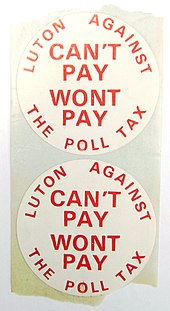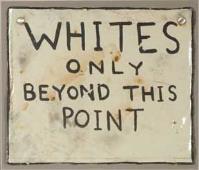|
Tuesday, January 19, 2021
 Details of 19th, 20th and 21st century Jim Crow culture and laws including payment of poll taxes and the requirement of passing complex literacy tests selectively given to suppress black votes, which tests were administered by local officials with no federal oversight, may be reviewed in the Nov. 24th and Dec. 8th articles. Gerrymandering was another method states employed for Black voter suppression. Gerrymandering Gerrymandering is defined by the Oxford dictionary as the manipulation of the boundaries of an electoral constituency to achieve a result to favor one class or party. Read more . . .
Wednesday, January 6, 2021
 Persons sometimes believe that for them to have an actionable whistleblower claim under New Jersey Law, that they had to have reported or "whistleblew" what they believe to be their employer's illegal acts to some type of regulatory body such as the Dept. of Banking & Insurance, Depart. of Health, OSHA, or to the police, or a newspaper or other news outlet. However, the NJ whistleblower statute, the Conscientious Employee Protection Act (“CEPA”), N.J. Read more . . .
Tuesday, December 29, 2020
 The Black Civil Rights Movement to end segregation started in the 1950's. NAACP activist Rosa Parks was a major catalyst when in December 1955, she refused to give up her seat on a public bus to a white man. This Movement continued into the 1960's and began garnering national attention with the 1961 Freedom Riders. To listen to Philip Randolph's stirring and famous speech on the August 28, 1963 March on Washington, click here; “We are the advanced guard of a massive, moral revolution for jobs and freedom. This revolution reverberates throughout the land touching every city, every town, every village where black men are segregated, oppressed and exploited. Read more . . .
Tuesday, December 15, 2020
 Literacy tests Many American blacks were uneducated and their ancestors had been illiterate for decades as it had been against the law to teach a slave to read and write. Schools were segregated by race and the funding for and quality of education for black children was inferior. Jim Crow states enacted “literacy tests” as a prerequisite to voting to prevent blacks from voting. These tests were administered at the discretion of the locals in charge of voter registration and were not administered uniformly, with the most difficult questions that were required to be answered correctly given only to prospective black voters. Many white educated voters would not have been able to pass the literary tests given to black prospective voters. Read more . . .
Tuesday, December 8, 2020
 NJ employees who are disabled sometimes hit stone walls when they ask their employer for a disability accommodation that will allow them to keep working. Some employers either deliberately or unknowingly do not understand the law and the standards to be applied. First, in New Jersey, all employers, public and private, under the NJ Law Against Discrimination (LAD) are required by law to provide reasonable accommodations for an employee’s disability to allow them to keep working. This is true whether the disability is temporary or permanent. These cases frequently turn on what is considerable to be “reasonable” accommodation standards for an employee’s disability accommodation. Read more . . .
Tuesday, December 1, 2020
 In what is not good news for employees working for religious organizations, a Federal agency, the EEOC, in November issued proposed updated guidelines for its Compliance Manual on Religious Discrimination. These proposed revisions to the Compliance Manual follow case law on religious discrimination, including US Supreme Court opinions such as those issued in the Court’s July 8, 2020 ruling in Our Lady of Guadalupe Sch. v. Morrissey-Berru. In this Read more . . .
Tuesday, November 24, 2020
 After the Civil War ended in 1865, some states passed harsh laws that severely limited the rights of black people, segregated them, restricted the kind of property black people could own, including restricting them to only own property within a city limit to prevent them from earning money through farming on their own, forced them into involuntary servitude, and if they escaped they would be arrested. It was not until 1868 that the 14th Amendment attempted to halt the states’ statutes restrictions of rights of blacks to give them equal protection under the law. However, it wasn't until the 15th Amendment, ratified in 1870, that states were specifically prohibited from restricting the rights of voters based on race. The 15th Amendment The 15th Amendment states: “The right of citizens of the United States to vote shall not be denied or abridged by the United States or by any State on account of race, color, or previous condition of servitude.” The Post Civil war period of Reconstruction ended seven years subsequent to the 15th Amendment in 1877. Read more . . .
Tuesday, November 17, 2020
 Jim Crow laws and the rise of the KKK in the beginning of the 20th century made any stepping out of Jim Crow culture dangerous. Well into the 20th century, it was dangerous to violate Jim Crow when shopping, traveling or walking in states that had government mandated apartheid. Even in the North where there was not official government mandated apartheid, Blacks were not spared the discrimination of oppressive Jim Crow culture and faced much discrimination when traveling. Apartheid and Jim Culture flourished in many states well into the 20th century, making a dangerous passage for blacks who veered outside of its neighborhoods and cultural sociological boundaries. The 1936 Green Book: The Black Travelers’ Guide to Jim Crow America For three decades, a guide called The Negro Motorist Green Book first published in 1936, provided Blacks with advice on safe places to eat and sleep when they traveled through the United States. Read more . . .
Wednesday, November 11, 2020
 The roots of government ordered apartheid in the United States was not just during slavery but continued beyond the passage of the 13th Amendment which abolished slavery, and apartheid and Jim Crow continued into the 20th century. Apartheid is a government law, policy, or legal system of segregation or discrimination on grounds of race. Post the 13th Amendment in 1865, apartheid in the US became legally enacted through harsh black codes, Jim Crow laws. Three years later, in 1868 after the passage of the 14th Amendment which attempted to stop states’ restrictions of rights of Blacks, apartheid, euphemistically known as “Jim Crow” nevertheless continued. This government ordered strict-segregation-by-race was established by statutes and ordinances that detailed and limited every aspect of a black person’s life, restricted their civil rights, limited their freedom of movement, where they could walk, prohibited their use of parks and from entering other places. Read more . . .
Monday, November 2, 2020
 If you are the only minority in a protected class in your workplace, you may wonder if such a lack of diversity is illegal. It is not necessarily illegal. Whether or not it is actionable depends on numerous facts, but one lawsuit has recently been brought against a federal agency to have more transparency in data as to diversity in the workplace, to enable them to identify enforcement priorities as to civil rights in employment. Several States have filed a lawsuit against the Equal Employment Opportunity Commission ( EEOC) over the EEOC’s policy that limits states’ access to employer data on workplace diversity. These states allege that this data is critical for them to be able to enforce discrimination laws by identification of civil rights violations. Read more . . .
Tuesday, October 27, 2020
 It was not until the 1954 that the Supreme Court overturned the Plessy v. Ferguson 1896 decision and the "separate but equal" doctrine, yet government mandated apartheid continued in many states. Brown v. Board of Education In Brown v. Bd. Read more . . .
|

|
|
|